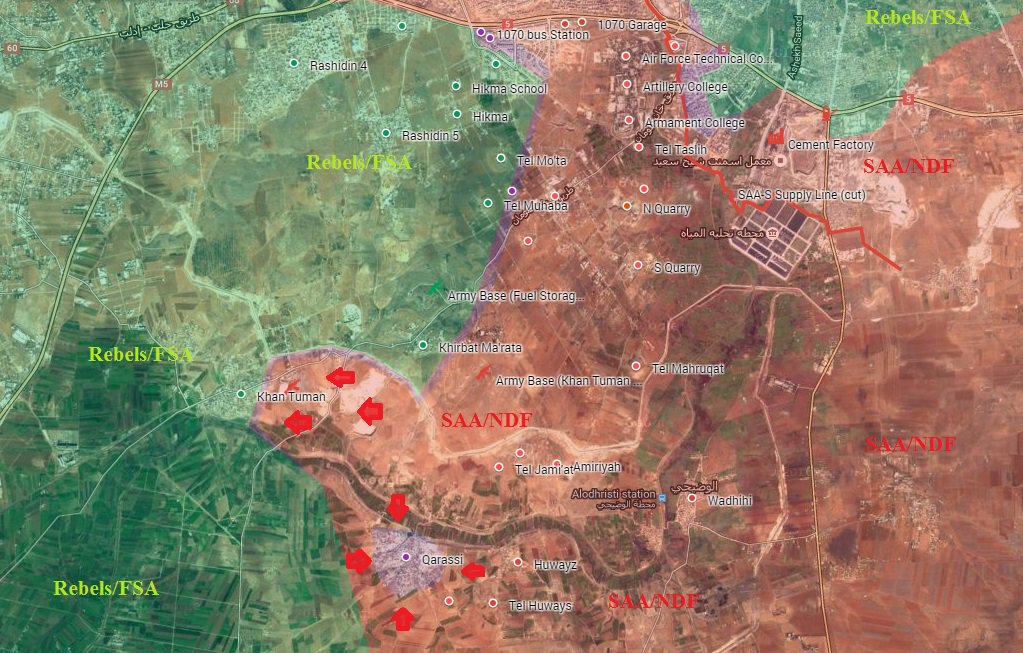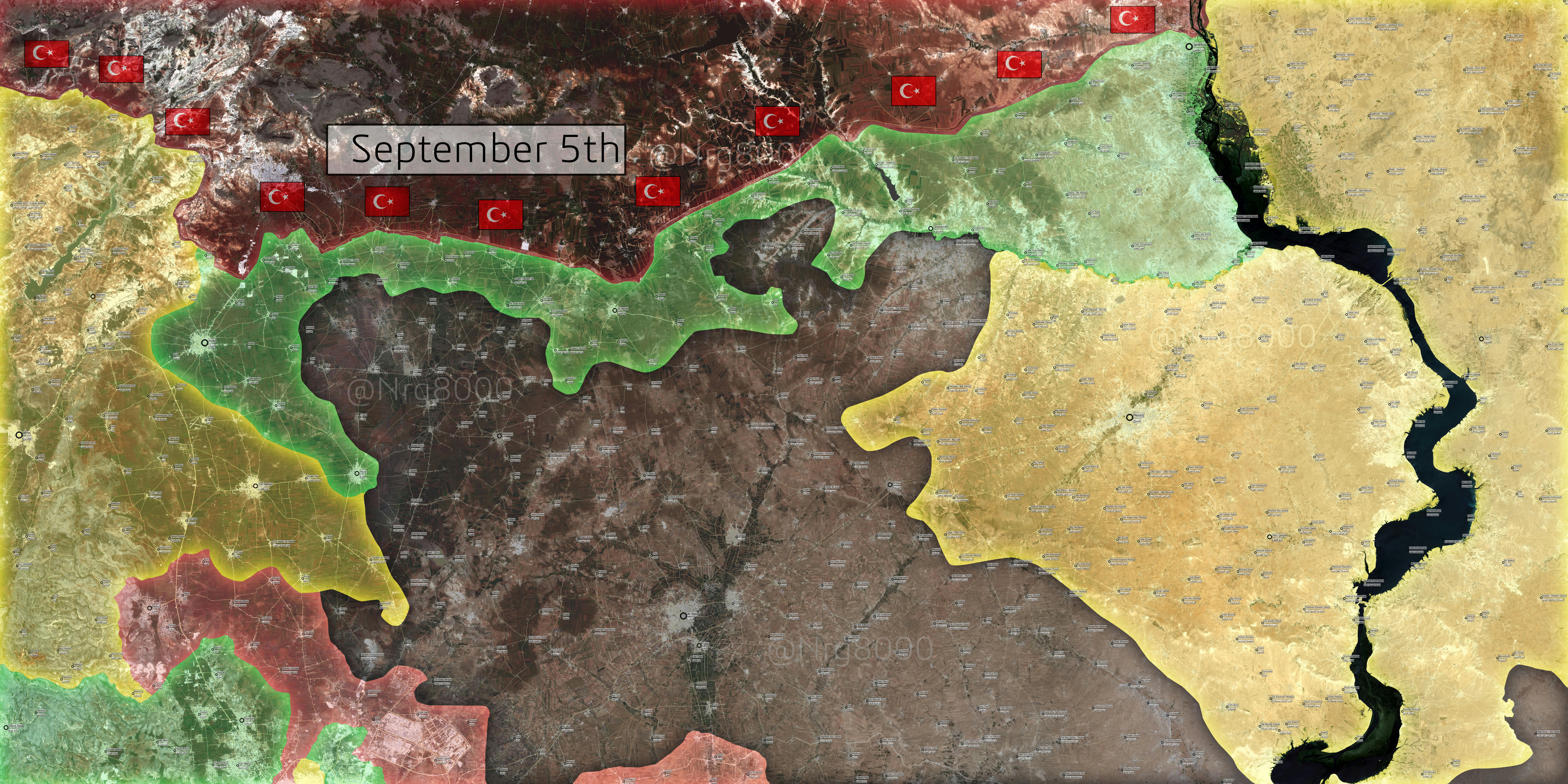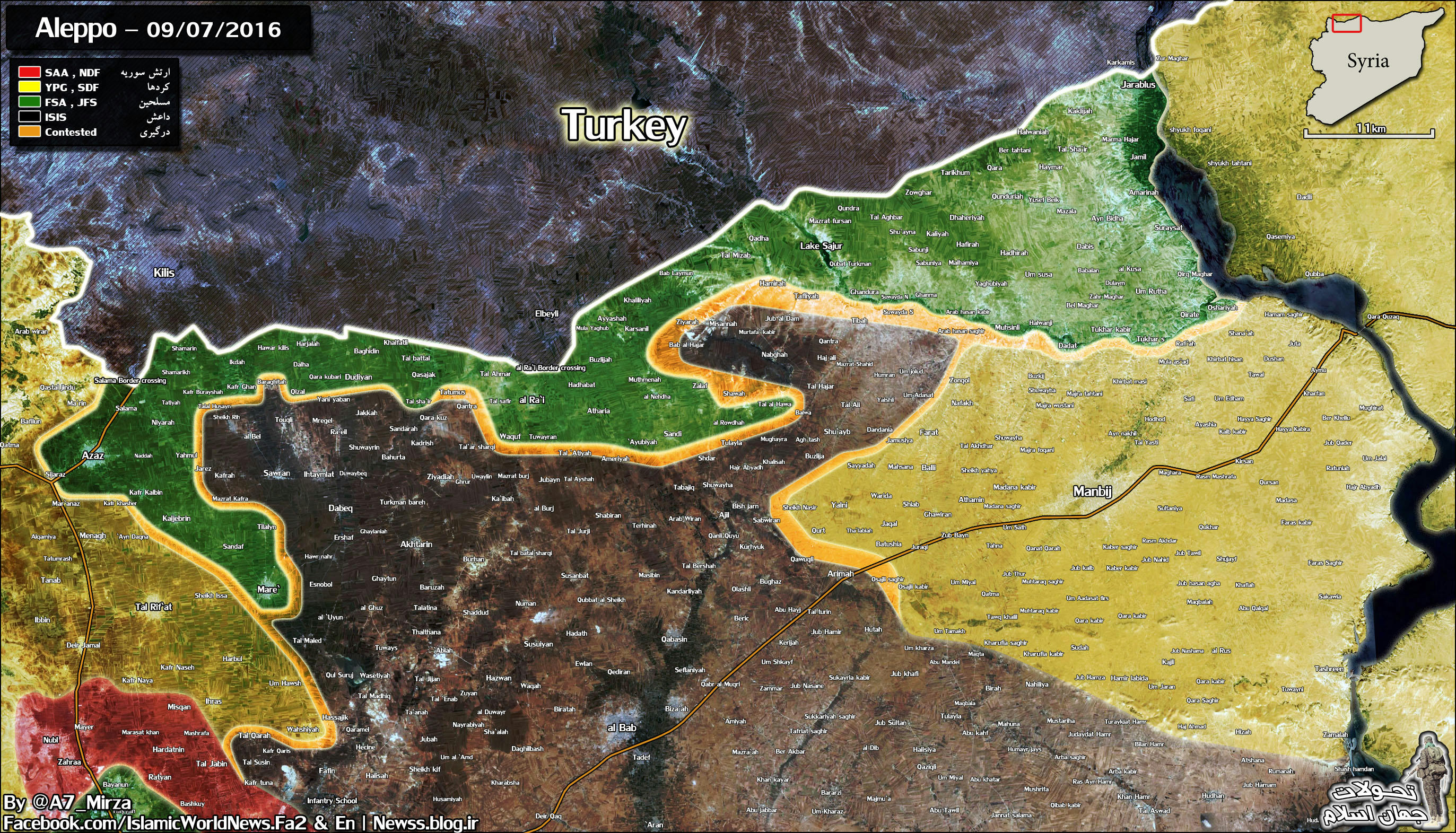The Obama administration has told Russia that it is at the end of its patience in trying to arrange a cease-fire in Syria, along with proposed joint U.S.-Russia counterterrorism operations, and that it expects a decision from Moscow in the next several days.
A final proposal was given to the Russians as President Obama met with Russian President Vladimir Putin on Monday in China, senior administration officials said.
The Russian Foreign Ministry announced that Secretary of State John F. Kerry would meet with his Russian counterpart, Sergei Lavrov, in Geneva on Thursday and Friday. The State Department, while acknowledging that the two spoke by telephone Wednesday morning, declined to confirm the meeting.
“We’re not going to take a deal that doesn’t meet our basic objectives,” Benjamin Rhodes, Obama’s deputy national security adviser, said Tuesday during the president’s stop in Laos. “And I think we’ll know very quickly whether or not we can close those remaining gaps.”
In declining to confirm the Kerry-Lavrov meeting, U.S. officials made clear that they saw no purpose in yet another negotiating session if Russia had not changed its position. In a related development, the Russian Foreign Ministry said Lavrov had expressed “indignation” to Kerry in their telephone call over the U.S. announcement of additional Ukraine-related sanctions against Russia this week.
“It was underlined that the normal cooperation, including resolving regional conflicts, cooperation for which the administration of Barack Obama regularly asks in working contacts, is impossible without basic decency,” a ministry statement said.
The proposal calls for a cease-fire in civil-war fighting throughout the country, including in and around the besieged city of Aleppo, and the safe, sustained delivery of humanitarian assistance. Once the truce is in place for a specified time period, the Syrian air force is to be officially grounded. Then the United States and Russia are to initiate a joint air campaign against counterterrorism targets.
The outlines of the deal were agreed upon weeks ago, but U.S. officials have accused Russia of backtracking on some elements, including the timing and duration of a cease-fire before the other aspects of the agreement begin.
During the Obama-Putin meeting, and sessions between Kerry and Lavrov, held on the margins of the Group of 20 meeting in Hangzhou, China, “the Russians said, ‘Well, we want to go back and talk about some of the things at the previous meeting.’ We said that’s not something we’re willing to do. We’re not going to go backward,” said a senior administration official, speaking on the condition of anonymity about the closed-door sessions.
“Aleppo is a big part of the conversation,” the official said. “But we’re trying to look holistically at the crisis writ large, because many other communities are suffering.
“We are looking for a sustained period of calm,” the official added. “Because the conversation has gone on so long, and because there have been promises made, and promises not kept, we are looking to have a series of steps that get us to a comprehensive approach. . . . This is not just going to be another short-term truce.”
Administration officials declined to specify what steps they would take if the Russia deal does not go through. Stating that the fight against the Islamic State in Syria and Iraq is his first priority, Obama has been reluctant to directly involve the U.S. military in Syria’s civil war, beyond providing limited arms and other assistance to moderate opposition forces.
Those forces, and other rebel groups being aided by Saudi Arabia, Turkey and others in the immediate neighborhood, overlap in places, including in and around Aleppo, with fighters of the Front for the Conquest of Syria — or Jabhat Fatah al-Sham, the group formerly known as Jabhat al-
Nusra, which recently
. The administration still considers the group an al-Qaeda affiliate.
Russia and Syria have been bombing the opposition, insisting that they are targeting the Front and that the United States is responsible for separating the groups. As part of the U.S.-
proposed deal, the administration says it will try to separate them. In the meantime, U.S. and Russian military and intelligence officials have mapped out much of northwestern Syria to demarcate areas of rebel control, mixed rebel and Front forces, and predominantly Front forces.
Under the coordination proposal, U.S. and Russian forces would agree on eligible Front targets and determine whose aircraft are best positioned to strike them.
Both the mapping and the cease-fire have become more difficult in recent days as the government on Sunday — with help from Russian air attacks — seized control of the last rebel supply line, southwest of Aleppo, cutting one of the main access roads that was to have been used for aid delivery.
In an indication that the government and its backers plan to continue fighting, pro-government media outlets reported Wednesday that the head of the Iranian Revolutionary Guard Corps’ elite Quds Force, Maj. Gen. Qasem Soleimani, visited Syrian army and militia formations around Aleppo to prepare for a major offensive to retake the opposition-held portion of the city.
In a letter sent last weekend, Michael Ratney, the State Department’s liaison to the opposition, spelled out the proposed cease-fire steps. The proposal calls initially for a “complete cessation of military operations by the regime and its affiliated forces and opposition forces on the Ramusa road” in southwest Aleppo, and entry by U.N. aid convoys.
Second, checkpoints are to be set up on Castello Road, the main northern entryway to the city that government forces seized from the rebels last month. The government is then to withdraw all of its vehicles and heavy weapons to more than a mile away from Castello Road, which will be declared a “demilitarized zone.” Similar withdrawals and checkpoints are then to be established in the south.
“If the cease-fire extends to 7 days and the checkpoints are set up and all forces are withdrawn,” the letter said, “then the U.S. and Russia will work on stopping the regime planes from flying and will work together to weaken al-Qaeda in Syria.”
Commitment to the cease-fire, it said, “will open the door for the political process” to continue in Geneva, where talks between the government and the opposition fell apart last spring as a previous cease-fire collapsed.
On Wednesday, the opposition’s political leadership released its vision for a future Syria. At a news conference in London, opposition leaders presented a road map for a transition away from President Bashar al-Assad’s rule that broadly coincides with proposals made in the past by the United States and other Western allies for a negotiated solution to the war.
It envisions a six-month negotiation process, followed by an 18-month period during which Syria would be ruled by a transitional governing body that would be representative of all Syrians. That body would oversee the drafting of a new constitution, resulting in U.N.-supervised elections.
But without a wider diplomatic agreement between the United States and Russia on ways to end the fighting, a return to political negotiations is unlikely. And even if they do agree, it is far from likely that representatives of the regime would agree to negotiate their own government’s demise.






